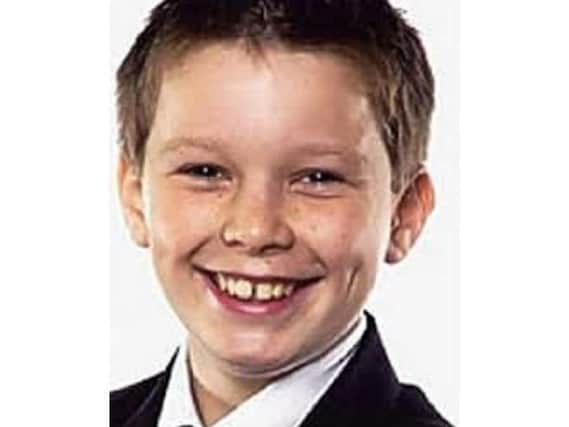New campaign to beat the school bus bullies


That’s the message from Kidscape, the anti-bullying charity as they launch School Transport Safety Week, which begins today.
Parents and teachers are being asked to watch out for signs distress and this year’s campaign is being supported by campaigner Paul Vodden, whose son, Ben, took his life while experiencing bullying on the school bus in 2006.
Advertisement
Hide AdAdvertisement
Hide AdBullying on the journey to and from school is a major concern for children and parents alike and is often seen to be harder to tackle as millions of children travel to and from school unsupervised.
The Vodden report, released in 2014, found that more than half of children had witnessed or experienced troubling incidents such as bullying and physical harm on school buses. The vast majority of bus and coach drivers have received no training or advice in how to handle bullying, despite 67 per cent having witnessed bullying.
The aim of the newly-launched awareness week is to show parents, children and those who work with children how to stay safe on the school run.
The charity has offered advice for children and young people and stressed their message: “You have a right to be safe from bullying wherever you are. This includes on the journey to and from school.”
Advertisement
Hide AdAdvertisement
Hide AdParents are advised to look out for changes in their child’s behaviour and a reluctance to go to school.
A Kiscape spokesperson said: “If your child is reluctant to go to school, asks you to go with them, wants to leave home earlier or later or comes home upset, with lost belongings, torn clothes or unexplained injuries they may be being bullied on the school journey.
“Keep a watchful eye and find time to gently ask your child whether anything is worrying them about the school journey. Look out for changes in their usual behaviour.
“If they tell you they’re having a difficult time on the school journey take it seriously. They may not use the word bullying but might talk about name calling, being pushed around, having their belongings taken from them. Disabled children and those with special educational needs can be especially at risk. Let them know that you are here to help and that together you will make it stop.”
Advertisement
Hide AdAdvertisement
Hide AdThe spokesperson added: “Bullying is any behaviour that is meant to hurt you, is repeated and where it’s hard for you to defend yourself. On a school journey this could include things like name calling, being pushed around, tripped over, hit and hurt, sexual comments or touching, having your belongings taken or destroyed, people taking photos or videos of you in order to make fun of you or being forced to hand over money.
“Bullying can become criminal behaviour if you are physically or sexually assaulted, or threatened - whether face to face or through mobile phones. This means you can contact the police or your local authority for help.
“If you are in immediate danger then do what you can to get out of the situation and get help. If that means getting off the bus early, running to a safe place, yelling, or asking a stranger to help you then do it. If you, or someone around you is at risk of being seriously hurt then dial 999.
“If you are being bullied, or you see it happening to other children then it’s important you get help. Talk to someone you trust - for example a family member or teacher. Explain what is happening and how it makes you feel. Let them know what they can
do to help.
Advertisement
Hide AdAdvertisement
Hide Ad“In the short term do what you can to stay away from the people doing the bullying. Sit, stand or travel to school with people you trust. If they are calling you names remember that there is nothing wrong with you. It is the people doing the bullying that have the problem, not you. It can help to repeat a sentence in your head that makes you feel safe or strong. For example, ‘I am not alone. I am stronger than this and will get through it’.
Youngsters who find themselves victims are urged to look out for other children that might be being bulliedand to sSit, stand or walk with them.
And most importantly you or your family should immediately let the school know if bullying is happening. It can help the school or police if you keep a record of when and what is happening.
You can talk to Childline about anything. No problem is too big or too small. Call free on 0800 1111 or get in touch online www.childline.org.uk